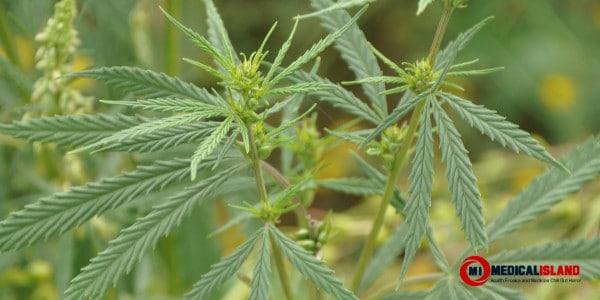2018 was a great year for the cannabis industry. More US states supported the decision to legalize the use of the herb for various purposes, while Canada legalized marijuana altogether in October. As of now, there are nine US states where anyone can smoke weed without breaking the law, while twenty-nine other US states have legalized the use of marijuana only for medical purposes.

Aside from the psychoactive effects of marijuana, which has made it a popular recreational drug, the herb can also be synthesized into very potent medicinal drugs that can help patients suffering from various kinds of diseases and disorders, particularly those of the CNS. Taking a closer look at the conditions which medical marijuana is effective in treating reveals why the cannabis plant has often been hailed as a miracle herb.
Alzheimer’s
Marijuana has been successfully used by physicians to counter the effects of Alzheimer’s in more ways than one. Nonetheless, the most significant and proven positive effect of marijuana on Alzheimer’s patients have been the drug’s ability to curb and reduce some of the most disconcerting, typical symptoms, exhibited through agitated and anxious behavior.
In fact, marijuana can potentially be used in the near future to severely impede the progress of the disease and may even possibly cure Alzheimer’s at some point. Although it’s only hopeful thinking at the moment, such positive expectations are not based on conjecture alone because studies have found marijuana to be effective in reducing and slowing down protein deposits in the human brain. As these protein deposits are largely linked to Alzheimer’s, therein lies the hope for a cure.
Arthritis
Arthritis is largely caused by inflammation of the joints and marijuana is a natural and powerful anti-inflammatory agent. Both CBD and marijuana have been found to be effective in bringing down inflammation in arthritic patients, leading to pain relief.
Since the herb has shown a similar ability to provide pain relief to arthritis patients, as compared to traditional painkillers, it has been accepted in mainstream medical science as an effective form of treatment. Given that marijuana also has minimal temporary and zero long term side-effects, the herbal meds have proven themselves to be quite a boon for patients suffering from chronic arthritis.
Multiple Sclerosis
The effects of marijuana on multiple sclerosis is extremely positive and encouraging. A very prominent and established study has proven the fact beyond doubt that patients suffering from tremors, spasmodic reactions, stiffness, and pain caused by multiple sclerosis, really do benefit from the presence of certain cannabis extracts in their system. There was also no cognitive impairment caused by the treatment to speak of whatsoever. Intoxication was observed, but it was mild and is to be expected from almost any other drug used to achieve similar effects.
Epilepsy
Epilepsy happens to be one of the most common diseases that physicians treat with medical marijuana (only in states where medical marijuana has been legalized). While both CBD and THC found in the cannabis herb is effective in treating the various symptoms of epilepsy and in reducing the frequency of the attacks, marijuana (high in THC) has been particularly effective in countering extreme cases of epilepsy where the patient suffers from severe seizures. The drug can be used to both reduce the frequency of such seizures, as well as being effective during the seizures.
Cancer
Never be misled into believing that cannabis has the ability to cure cancer, although scam artists may make such claims. Nonetheless, marijuana in its medical form does have the ability to counter many of the symptoms of cancer. For example, the CBD and the THC content are used for significantly increasing appetite in cancer patients, which in turn helps to prevent weight loss and cachexia, both of which are common in cancer patients. Additionally, medical cannabis is prescribed by doctors during chemotherapy, to counter some of the many side-effects that the cancer treatment is typically infamous for.
Even people affected with the HIV virus, and those with full-blown AIDS experience similar pain relief to those experienced by cancer patients, as well as a boosted appetite to keep cachexia at bay.
Inflammatory Bowel Disease and Irritable Bowel Syndrome
Inflammatory Bowel Disease is a more serious condition and it is not to be confused with Irritable Bowel Syndrome, although the symptoms can be strikingly similar. Patients suffering from either disease often get prescribed with medical marijuana for relief against cramps, continuous pain, and even psychological symptoms such as depression and social anxiety.
Can You Use Marijuana in Your State?
While great progress has been made in regard to legalization of marijuana in the United States, the situation is still quite confusing, irrespective of whether you are trying to smoke marijuana for recreational purposes or take the drug as a treatment for a severe condition which you suffer from. Marijuana is still an illegal narcotic substance according to federal laws.
Take Las Vegas, for example, where you can smoke weed with your friends, but you cannot travel outside the Nevada state lines with your marijuana, even if it is for medical purposes. For a more detailed understanding of the Las Vegas marijuana laws and regulations, check this blog out to make sure you don’t get into trouble in the city or anywhere else in Nevada because while it is legal, there are statutes of limitation that apply to that legality.
It is expected that by the next decade, almost every state will legalize the use of marijuana for medical purposes and at least a few more of the states will even legalize recreational weed. Nevertheless, a lot depends on how much medical progress is made on the effective use of marijuana.
There is little doubt about the positive effects of the plant-derived drug on certain patients like we have already discussed, but even more concrete results will need to be produced by the scientific community to strengthen the cause for legalizing medical marijuana all across the United States – and perhaps even the world.

